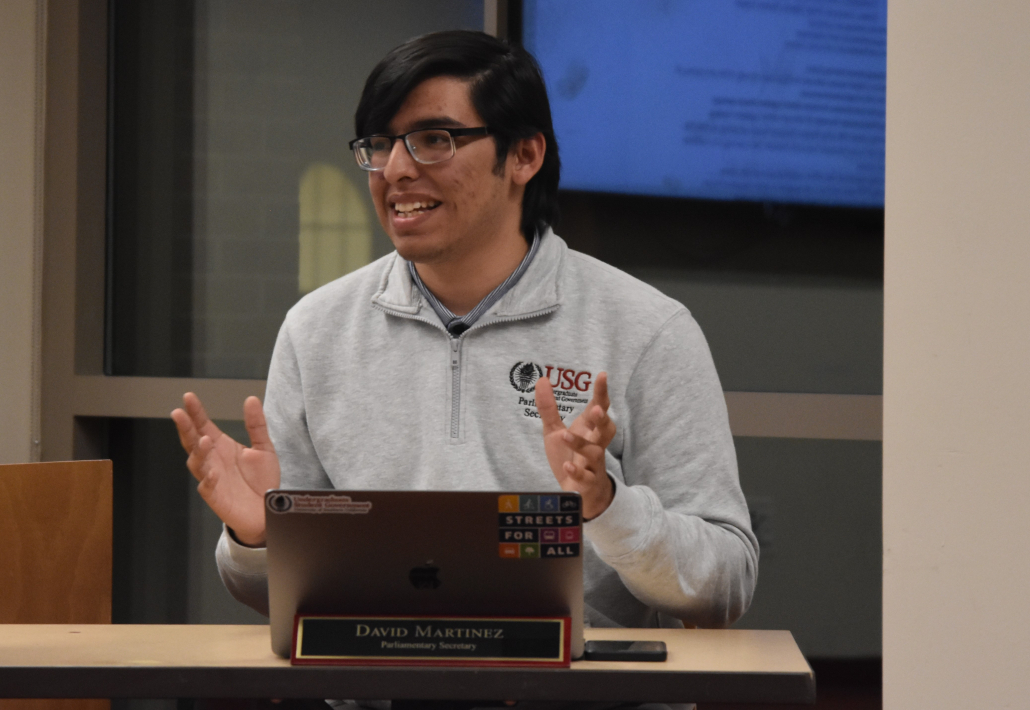USG set to vote on ranked-choice election

Now in the final stretch of the current Undergraduate Student Government administration, senators introduced a slew of new changes to the organization’s bylaws and election procedures in Tuesday night’s Senate meeting in the vast draft of omnibus Senate Bill 142-47, which will be finalized and voted on by March 27.
One of the more prominent changes in the bill was ranked-choice voting, a policy point that parliamentary secretary David Martinez initially drafted in January, citing the fact that multiple presidential candidates have yielded voting results that did not reflect a majority of the student body. This trend continued in this year’s election, where the winning candidates received 38% of the total votes cast. Martinez, the author of the bill, said that ranked-choice voting will be implemented for the 2024 election.
In a ranked-choice voting system, voters arrange candidates in order of preference. If a candidate obtains a simple majority of the vote, then that candidate wins. In the case of no candidate gaining a majority of the vote, then the candidate with the least amount of votes is dropped and their votes are redistributed according to their voters’ preferences.
Other changes proposed in the bill include increased transparency for registered student organizations and clubs requesting USG funding through “memos of understanding.” This proposal comes on the heels of the Senate’s Feb. 8 meeting, where various clubs voiced their frustrations at the lack of transparency and clarity regarding the process to apply for funding — which delayed the trial period of the University’s new First Generation Student Assembly and led to the denial of funds for several clubs, including Model United Nations.
“If we did their allocations process [on] a normal timeline, then they don’t have enough time to plan their budget,” Martinez said. “What this would do is make it so the funding for those outside organizations gets decided a year in advance so that they know that their money is secure.”
Hunter Hinson, chair of the Affordability and Basic Needs Committee, said in his update that the committee has ordered two medical supply vending machines that are set to arrive in four to six weeks. One will be placed at the Physical Education Building, and the other at Dauterive Hall.
“USG [will] hopefully subsidize prices with Plan B being somewhere around $5,” Hinson said. “It would contain over-the-counter medication, antigen services, clinical products and condoms.”
Students from the Slavic Cultural Club also came to the meeting with a proposal to begin their own student assembly, saying they had raised $1,000 for Ukraine war relief last semester and are currently in the process of raising more than $3,000 this year. In addition to fundraising, club members created the initiative “United for Ukraine,” where they drew attention to cyberattacks on the Ukrainian government and the damaging effects of Russian war propaganda — drawing the attention of the Ukrainian government’s Ministry of Digital Transformation.
“It’s been over a year since the work has been happening, and I believe that it’s vital that we take action and have a statement of support for our entire Slavic community here on campus,” said George Kapitan, president of SCC.

